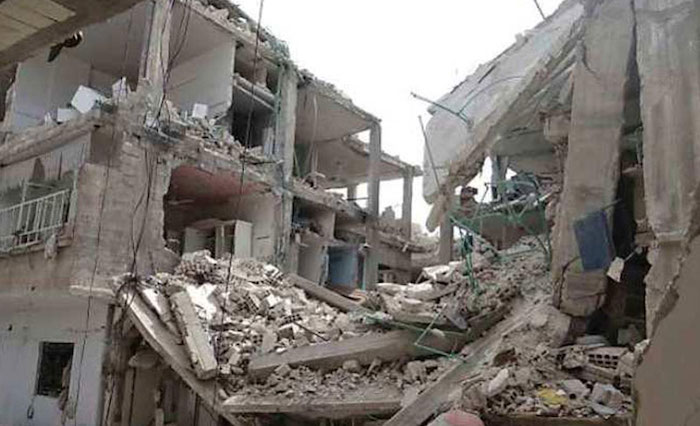A new report has identified structural defect as a major cause of incessant building collapse in Nigeria.
The report said cases of building collapse, which occurred in the 10-year period spanning 2009- 2019, were linked to structural defect.
The report showed that the rate of building collapse was predominant in the South-West which recorded 34 out of 56 cases, leading to the death of 132 persons in the period under review.
The report titled, ‘Building Collapse in Nigeria (2009- 2019), Causes and Remedies – A Review’, was compiled by S. O. Odeyemi, Z. T. Giwa, and R. Abdulwahab, all of the Department of Civil Engineering at the Kwara State University, Malete, Nigeria.
The report offered various perspectives to the problem of building collapse.
The report added that most of the collapse buildings were found to have been constructed with low-quality building materials.
It also revealed that incompetent craftsmen rather than professionals were engaged in the affected projects while existing building codes, meant to guide builders, were rendered ineffective because of the lack of political will to enforce same by town planning authorities
Meanwhile, the Chairman of the Nigeria Institute of Estate Surveyors and Valuers, Lagos Chapter, Mrs Olabisi Demola-Alade, says the state has had enough bitter accounts of building collapse leading to loss of lives and investments worth billions of naira in the last two decades.
Between 2011 and 2019, over 84 buildings collapsed across Nigeria. Only 21 out of the 84 occurred outside Lagos.
Quoting a report, she said, 59 per cent of the collapsed buildings in Lagos State in 2019 were existing structures while 41 per cent were under construction; seven of the cases were full collapse.
She was quoted as saying, “Several factors have been fingered as the causes of building collapse in Nigeria, chiefly the use of substandard building materials, the deployment of cost-cutting techniques in housing construction which is unsafe and the lack of professional supervision at various levels of the construction process.
“I call on every landlord, real estate investor, housing stakeholder, professional and expert in the built sector to embrace the laws and international best practices relating to erections of buildings as regulated by the Lagos State Building Control Agency other relevant agencies. Property developers must desist from resorting to the shortcut method while trying to cut costs which may lead to a total loss.”
The research added, “Building construction should be based on achieving the stability of such buildings. However, many clients put more interest on aesthetics. As the architects are accountable for the design; quantity surveyors to the cost so also engineers ensure the stability of building structures. No matter how small a building is, there is a possibility of failure.
“It is, therefore, a danger if engineers are not involved in the design and construction of building structures. The failure of a project starts with poor preparation. The involvement of the right personnel at the right time would aid adequate planning and ensure thriving project sustainability. Until the right reason is given on who designs, gives approval to the designs, builds, supervises and gives final approval upon construction, building collapse would be an issue of concern.”
According to the recommendations made in the report, the cases building collapse could be eradicated if stakeholders in the construction industry adhered strictly to the provisions of the building code.
Also, the Standard Organisation of Nigeria should ensure that only certified building materials were allowed in the market, it stated.
It added that soil test, environmental impact analysis and structural analysis needed to be made mandatory and should be submitted alongside the building plans to town planning authorities by all building developers.
Also, regulatory professional bodies such as the Council for the Regulation of Engineering in Nigeria and other associations need to on regular basis organise workshops for stakeholders in the building industry, in order to update their knowledge and highlight the dangers and penalties associated with building collapse.




